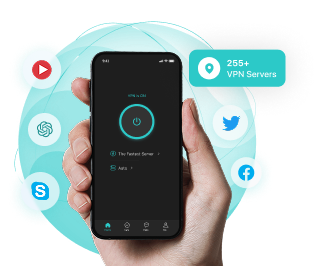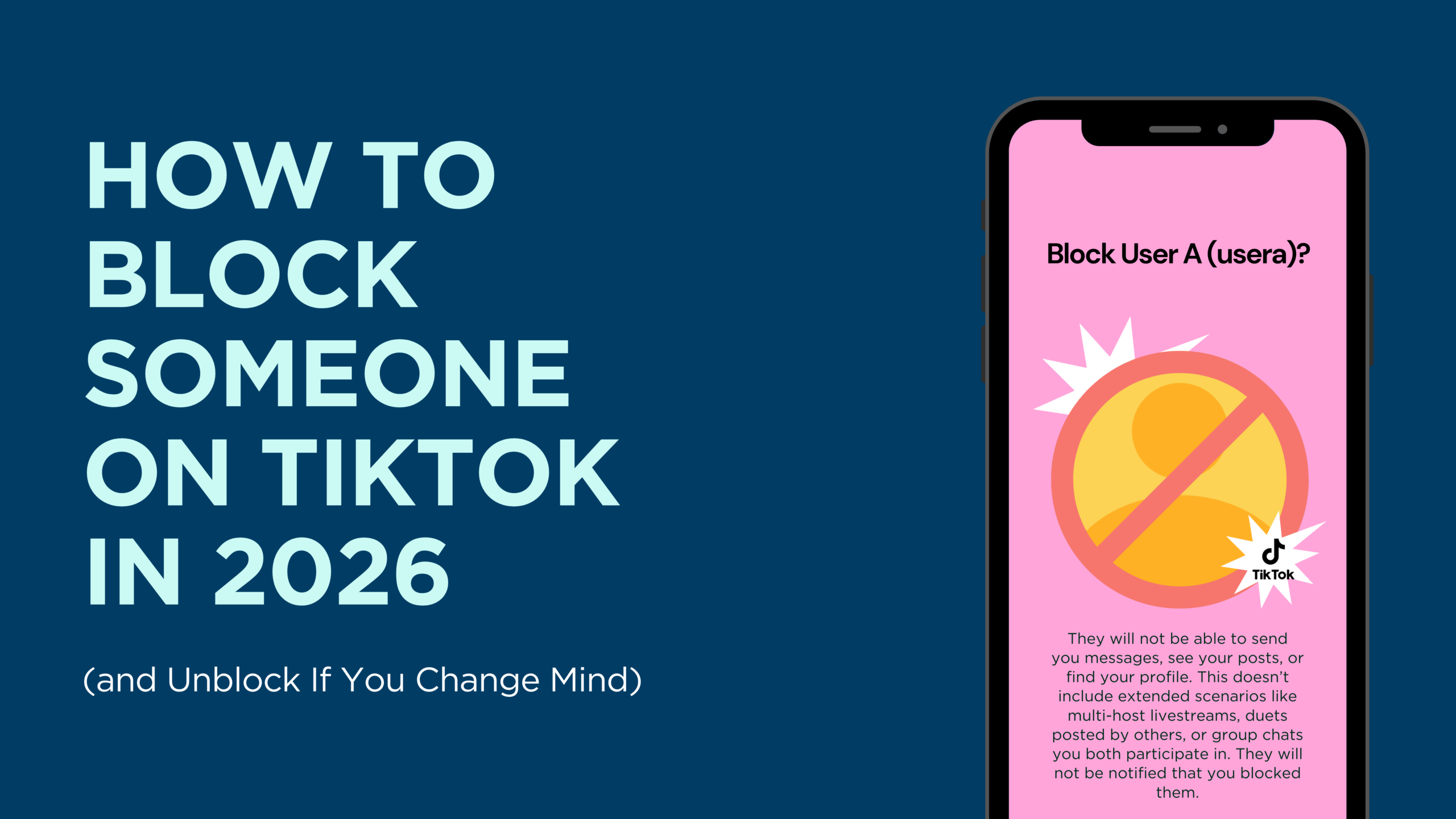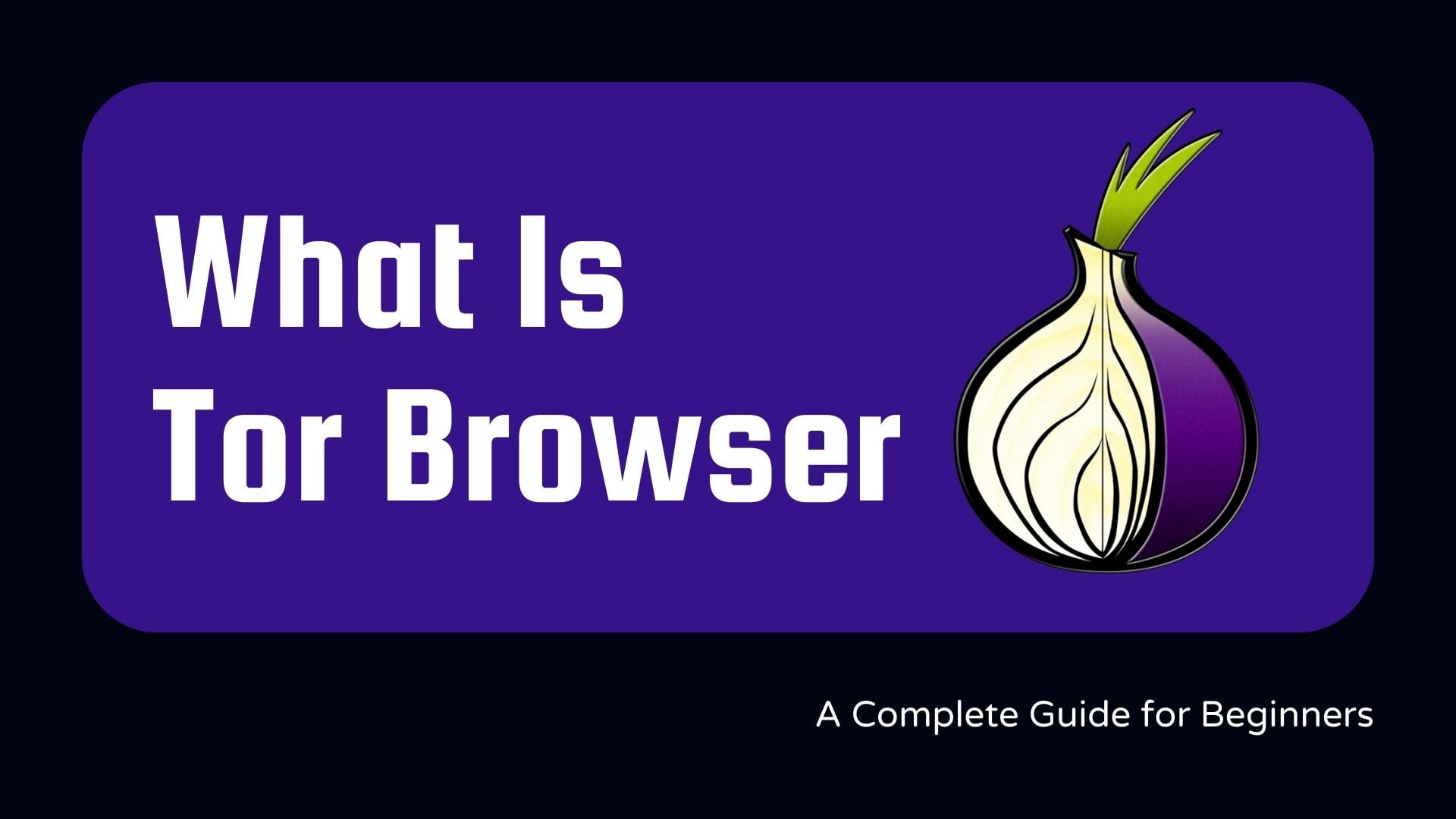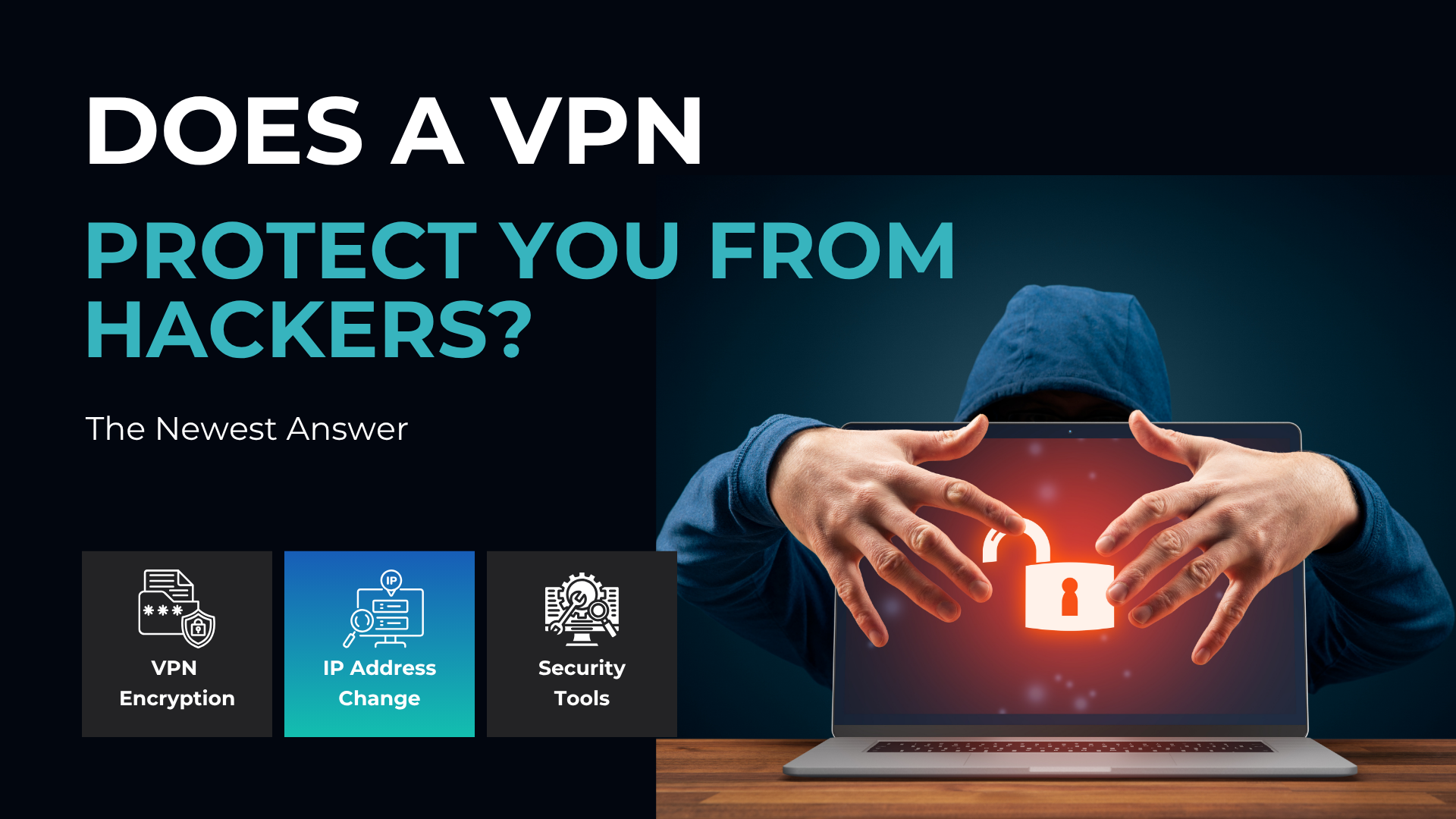
As VPNs are becoming a mainstream online security solution, some people are skeptical about their effectiveness. Does VPN protect you from hackers?
No matter, this blog will answer your question and bring you more great tips for safe browsing. Let’s get started!

Table of Contents
Can a VPN Protect You From Hackers?
Yes, the answer is, a VPN can protect you from hackers.
A VPN encrypts your data and masks your true identity, thus preventing hackers from prying eyes. Outstanding providers also offer advanced features in their paid services to add an extra layer of security to your data, and come with a wealth of extra tools to protect your privacy and device safety in every way. Thus, a VPN is certainly an extremely effective defense against most hacking attacks.
What Security Protection Against Hackers Can VPN Provide?
Next, let’s analyze, in detail, exactly how a VPN can protect you from hackers through a series of security features.
VPN Encryption
VPN encryption is the heart and essence of a VPN service. When you use a VPN, the VPN builds a tunnel between your device and the server, and puts a black shield over all internet activity with strong encryption, making sure that hackers or other criminals can’t snoop on what you’re doing. Most providers today use the AES-256 encryption algorithm, the most secure and strongest standard available. When your online data is transmitted via a VPN tunnel, it will be encrypted into a complex string of jumbled code that can only be decrypted by the right key.
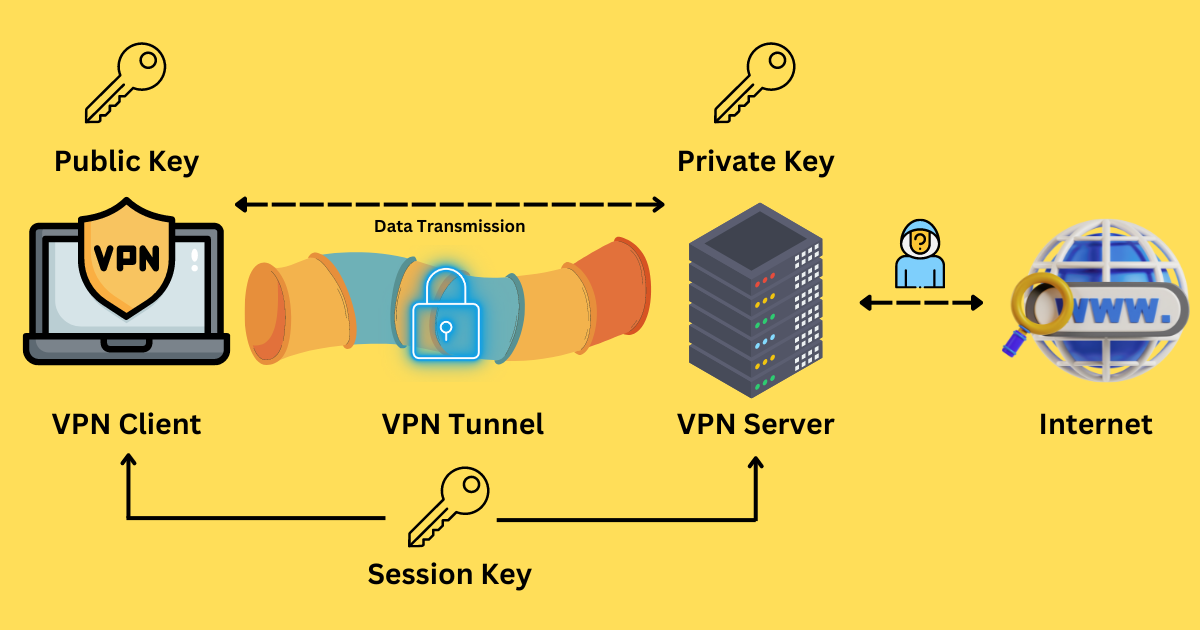
In addition, the VPN protocol is an equally important part of encryption. If the encryption algorithm is like a soldier, then the VPN protocols are the masterminds behind the battle strategy – they define the rules and methods of data transmission. This also means that each protocol has its own unique advantages and is suitable for different application scenarios.
For example, OpenVPN is popular for its superior security, while WireGuard is an emerging choice for its lightweight and speed. A good VPN service provider will offer multiple protocols at the same time, ensuring that you can choose the right one for your needs in any situation and enjoy the smoothest online experience while maintaining security.
IP Address Change
Your IP address is like your “ID card” on the Internet; it reveals your real geographic location and corresponding identity info. When you connect to a remote VPN server, your IP address will be replaced by that of the server. In this way, hackers or other third-party organizations will not be able to obtain your real identity, let alone launch malicious attacks against you.
Of course, the IP address change not only enhances privacy protection, but also effectively lifts geo-blocking, also a common reason why many people use VPNs. Some services may restrict access to some regions, or offer regionally exclusive resources. By connecting to a specific regional VPN server, you’ll be able to cross the barriers and enjoy the more open world of the internet.
Kill Switch
When a VPN is suddenly disconnected, without proper protection, your real IP address could be exposed to hackers or malware, especially in a public Wi-Fi environment. For example, let’s say you’re using a VPN to browse your bank account at a café, and suddenly the connection is dropped; a hacker could use this vulnerability to carry out an attack.
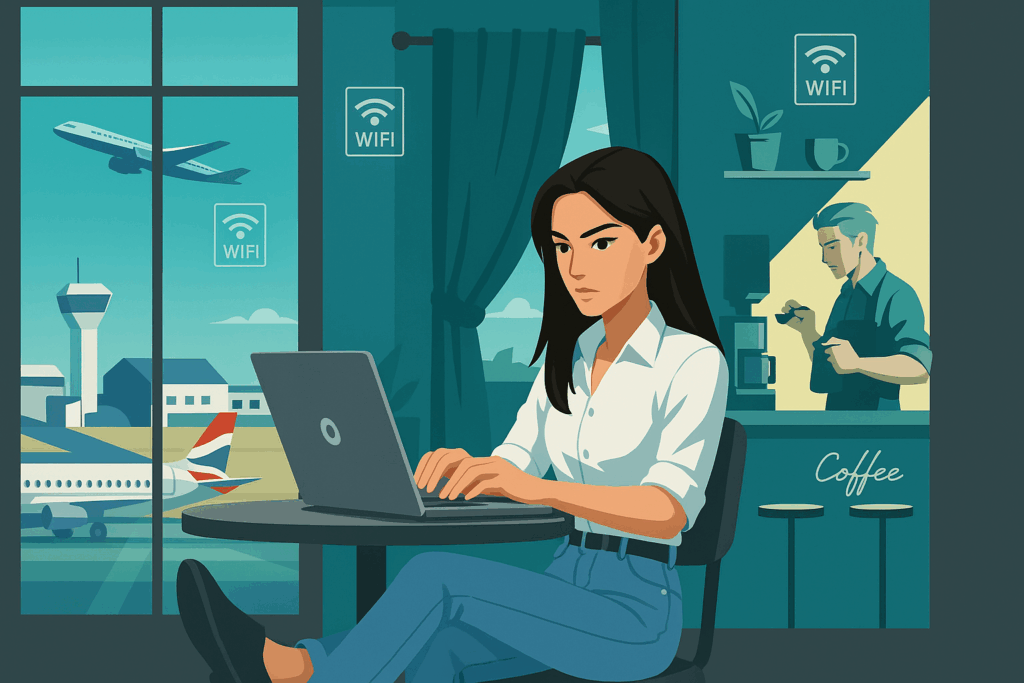
To prevent this from happening, almost all trusted VPN providers offer the Kill Switch feature. Once you enable Kill Switch, whether it’s due to an unstable network or a malfunctioning VPN service, it will cut off your device’s internet connection as soon as the VPN session is interrupted, ensuring that your real identity and data won’t be compromised.
Leak Protections
Sure, even if a VPN can encrypt your internet connection, there is still the possibility of it failing. Therefore, many VPNs offer a variety of leak protection features to keep your true identity and activities from being exposed.
The most common leakage protection is DNS Leak Protection, which prevents VPN users from having their DNS requests sent to the ISP’s servers, thus disclosing browsing history. Additionally, IP Leak Protection and WebRTC Leak Protection are also key features that prevent personal data from being revealed in the event of a VPN connection outage.
Some of the best providers even specialize in providing appropriate leak detection tools to help users check their effectiveness at any time.
No-Logs Policy
While it is effective in protecting your data when you use a VPN, don’t forget that the VPN itself is also a third-party service provider. If the provider logs your data, including your real IP address, online activities you perform while using the VPN, and even your device info, any breach or unscrupulous sale of this data could lead to a significant security risk.
To solve this problem, many trusted VPN service providers promise to implement a No-logs Policy, in which they do not record users’ usage logs and sensitive data. As a result, even if the provider’s servers are hacked, there is no useful info that can be accessed.
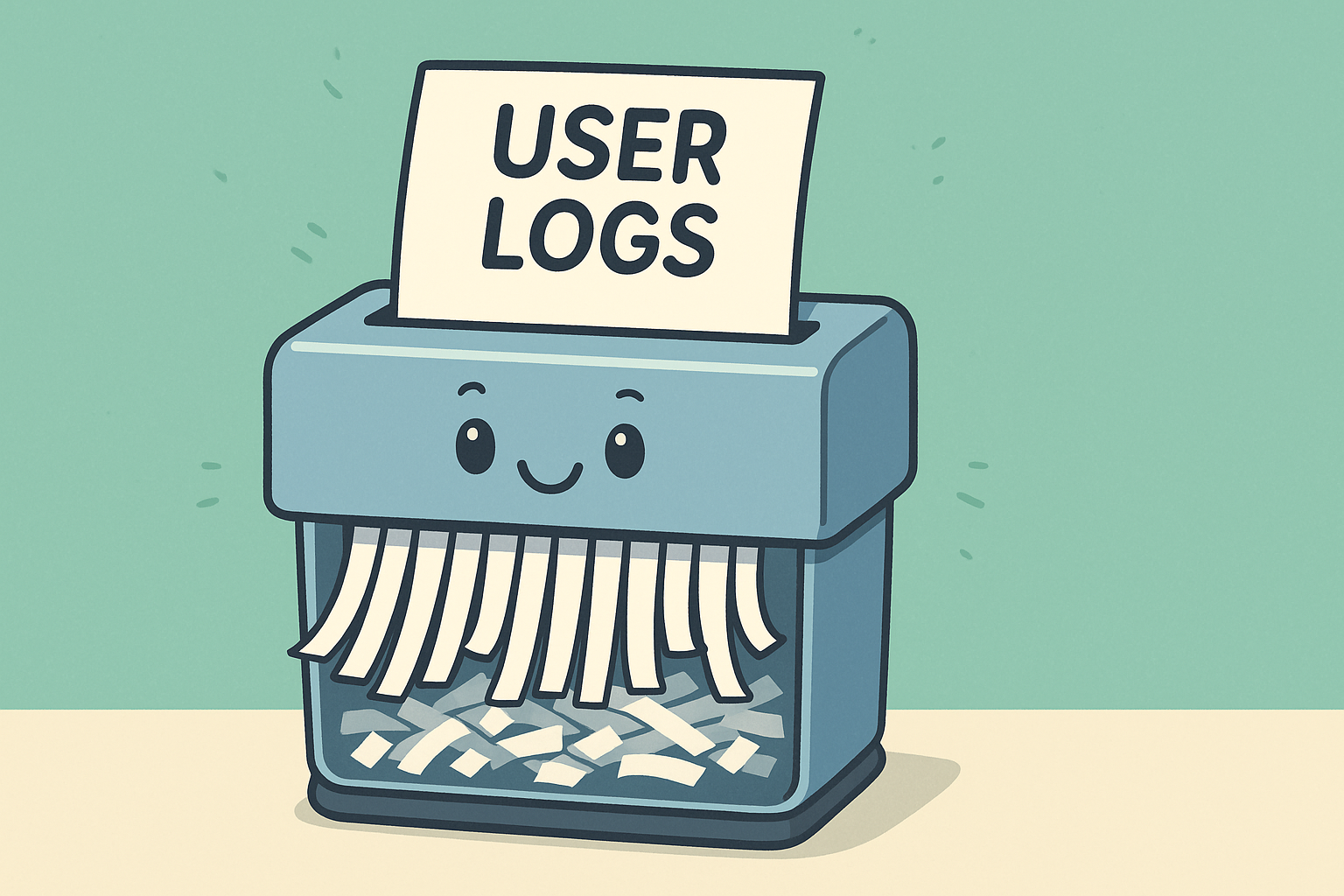
Additional Security Tools
In addition to basic security protections such as encryption, IP address hiding, Kill Switch, and No-Logs policy, many top VPNs offer a range of additional tools to provide a more comprehensive security solution. These include, but are not limited to:
- Ad Blocker: Blocks all forms of ads and pop-ups.
- Tacker Blocker: Blocks online trackers or cookies from capturing browsing history and analyzing your browsing habits.
- Malicious Website Blocker: Blocks you from visiting dangerous or illegal websites.
- DarkWeb Monitor: Alerts you when your personal data appears on the dark web.
- Antivirus Protection: Helps protect your device against viruses, Trojans, or other harmful threats.
- Download Protection: Keeps your device safe by quarantining harmful downloads in advance.
What Other Cyberattacks Does a VPN Protect You From?
In addition to protecting your privacy and identity from the prying eyes of hackers, VPNs are also effective against a number of other common cyber attacks.
1. Man-in-the-Middle Attacks: You may be surfing the web at a bar or airport using a public Wi-Fi network. These networks are often not secure, and hackers may intercept your web traffic through MITM attacks to steal passwords, credit card info, or other sensitive data. With a VPN, your web traffic is encrypted, rendering your data useless even if hackers try to intercept it.
2. DDoS Attacks: If you’re a gamer, you may have experienced a sudden crash of your game server. This may be due to a DDoS attack by a hacker that sends a lot of traffic to the server, causing it to go down. A VPN protects your online activity by hiding your real IP address so that hackers can’t directly attack your device or network.
3. Tracking and Surveillance: While browsing the web, you may have noticed that many advertising companies push ads based on your interests and history. Using a VPN you can change your IP address to stop these advertisers from tracking your online behavior, giving you more freedom and privacy when surfing the web.
4. Fake Wi-Fi Hotspots: In public places, hackers may set up fake Wi-Fi hotspots to lure you. When you connect to these hotspots, hackers can easily monitor your online activities and even steal sensitive info. VPNs can ensure that your data won’t be stolen even if you connect to fake Wi-Fi hotspots.
5. DNS Spoofing: In such an attack, hackers spoof the DNS response to direct you to a malicious website disguised as a legitimate one. In this way, you may unknowingly enter personal info or download malware. A VPN encrypts your DNS requests to prevent DNS spoofing attacks so that you are always connected to the right site.
6. Phishing: Phishing often steals your details by tricking you into clicking on malicious links disguised as credible websites or email links. While a VPN won’t directly prevent phishing attacks on its own, it can protect you from being easily traced when visiting potentially dangerous sites by hiding your real IP address and encryption.
Other Shields to Protect You From Hackers
While VPNs provide a solid barrier to your online security, hackers are of varying levels, and attack methods are ever-changing – VPNs don’t safeguard us 100% from hackers. Therefore, we need more shields to fortify our defenses.
1. Strong Passwords: Passwords are the “first lock” of your online security, and their strength determines the level of protection. The days of using “123456” or your birthday as a password are long gone, and hackers can easily crack such weak passwords. We recommend that you use a free password generator to create long and complex passwords to enhance security, with a password manager to help you memorize them.
2. Two Factor Authentication: 2FA takes your account protection to the next level. Even if a hacker gets your password, they won’t be able to access the account because they still need to go through a second verification step (such as an SMS verification code). This extra layer of protection greatly reduces the likelihood of a successful hack.
3. Antivirus and Firewall: Imagine you live in a walled and gated community, and antivirus and firewalls are the “gates” and “guards” of your house. They monitor your network activity around the clock and prevent malware from sneaking into your devices.
4. Regularly Updates: Software updates may annoy you, but they’re actually an effective tool against hackers. These updates not only fix the vulnerabilities in the program but also enhance the protection. They are like the doors and windows in your home that are always being reinforced, leaving cyber thieves scratching their heads and walking away empty-handed.
5. Be Wary of Phishing and Malicious Attachments: In recent years, phishing has become overwhelming. You might receive messages informing you of a prize win, or notifications seemingly from official platforms, all aiming to lure you into clicking malicious links or downloading infected files. Please stay alert and double-check the authenticity of the sender and the link before clicking on it, so that hackers can’t catch you with fake “bait”.
6. Data Backup: Imagine if your computer has been hit by a ransomware virus, all your files have been encrypted, and the hackers are demanding a ransom. For now, a data backup is like a life-saving “insurance policy” that will save you from the threat and allow you to recover your important files.
We believe that with the help of VPN and the above security strategies, you can easily build a multi-layered network fortress. No matter how hackers try to invade, you will be able to stay calm and handle the situation with ease, guarding your personal info and digital life.
Recommended: The Best VPN for Online Security
It’s important to keep your eyes peeled when picking a VPN – not all VPNs can really provide you with hacker protection you can rely on. We highly recommend X-VPN as one of the best VPNs for online security today, and one that will truly shield you from cyber threats.
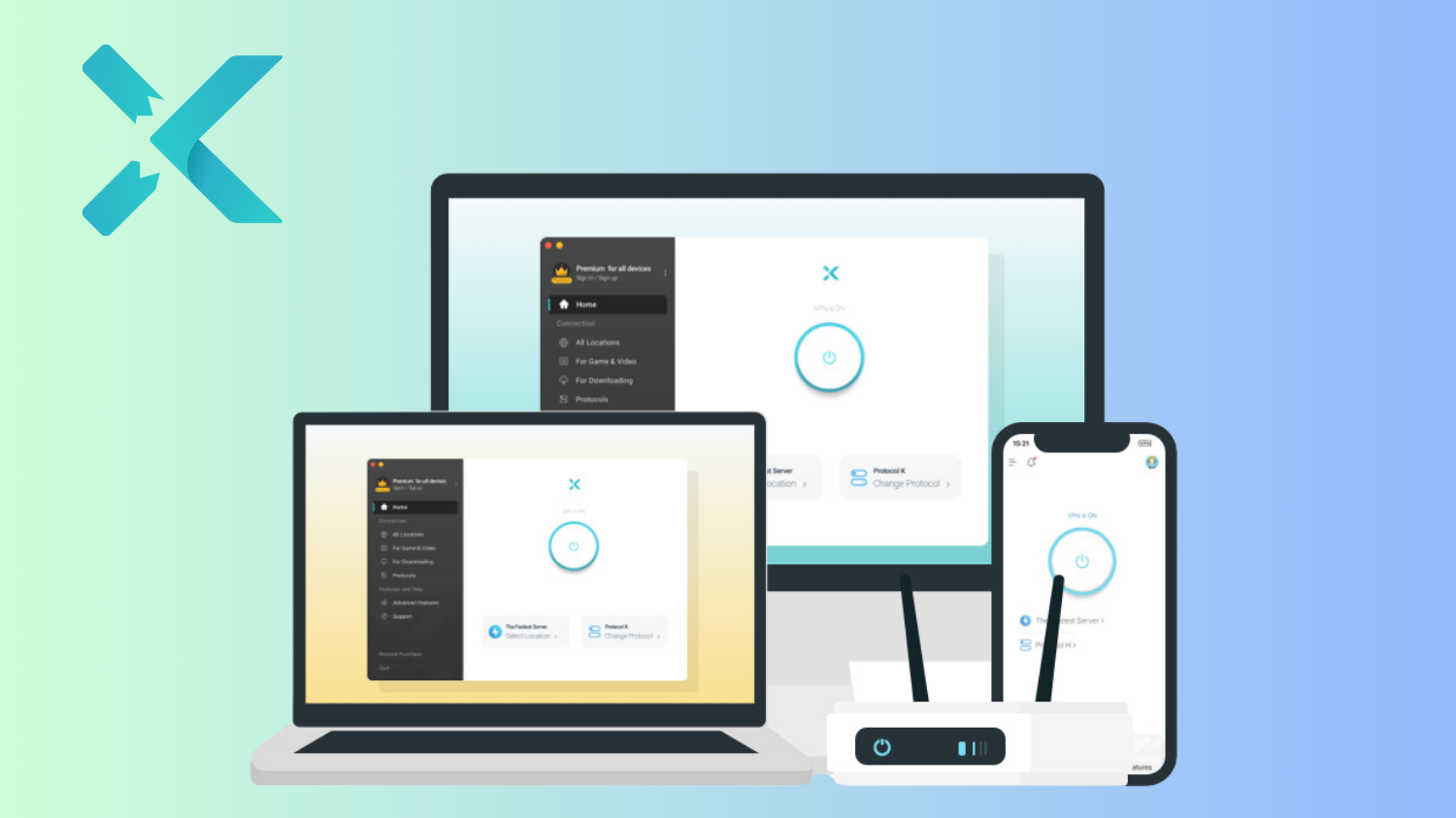
Military-grade Encryption, Fully Arm Your Data
10,000+ Global VPN Servers, Hide Your True Location
Complete Hacker Defense Arsenal
Full Online Security Solution
Free to Start
📝Basic Info
| Global Servers | 10,000+ servers in 250+ locations |
| Compatibility | iOS, Android, Windows, macOS, Routers, Chromebook, Smart TV, etc |
| Security | Top VPN Encryption with strict No-logs Policy |
| Speed | Ultra-Fast and Stable |
| Connections | 5 Simultaneous Connections |
| Free Version | Provides for all common systems. |
| Price | $11.99/mo, $47.99/year, $69.99/2-years |
Now, you can hit the button below to get X-VPN free, or just buy X-VPN premium to protect yourself from hackers in a safer way – no worry, a 30-day money-back policy is offered for users who pay on the web!
Conclusion
So, does a VPN protect you from hackers? The answer is yes. A high-quality VPN encrypts your online data with top-notch tech, and along with rich VPN features and extra security tools, makes hackers untouchable. Get X-VPN now and enjoy safe surfing instantly!
Attention: Although VPN use is legal in the vast majority of areas, please don’t make any moves before double-checking local laws.
FAQs
Can you be hacked while using a VPN?
Yes, you are still at risk of hacking even while using a VPN. Although VPNs can encrypt your online activities and protect your digital identity, data breaches due to system vulnerabilities, virus intrusions, password theft, phishing, and other issues can still leave you with a serious security crisis.
Does a VPN actually protect you?
Yes, a VPN does actually protect us. With VPN encryption and other advanced technologies, a VPN can maximize the protection of our privacy from third parties. However, please note that it is important to choose a trustworthy provider that offers high-quality services, such as X-VPN, to get the best protection.
How to protect my data from hackers?
You can protect your data from hackers by: using a VPN, setting strong passwords, 2FA authentication, antivirus and firewall; updating systems and apps regularly; being wary of phishing and malicious attachments; and backing up important data.

